FAULT meets rising star Malachi Kirby
‘Black Mirror’ is back on our screens. We sat down with south London native, Malachi Kirby, to talk about his role in a future episode and also his stellar performance in ‘Roots’.
‘Black Mirror’ is back! Some of the titles were teased online by Charlie Brooker, which episodes are you featuring in?
It’s called ‘Man Against Fire’. I think it might be episode 4 or 5.
The new episodes has a Marmite scene and of course there was the pig storyline, which both strangely mirror recent events. Just in case Charlie Brooker is actually predicting the future with this series, in regards to your episode and without giving the storyline away, is there anything we can do to prepare?
Ooh… without giving the plot away? Erm… I’m not really sure to be honest [laughs]. It’s something that I’m looking at and thinking, ‘OK, this is something that could possibly happen.’ I’m not quite sure how you would deal with it… apart from… just to… no, no, no… sorry. I can’t really think of anything.
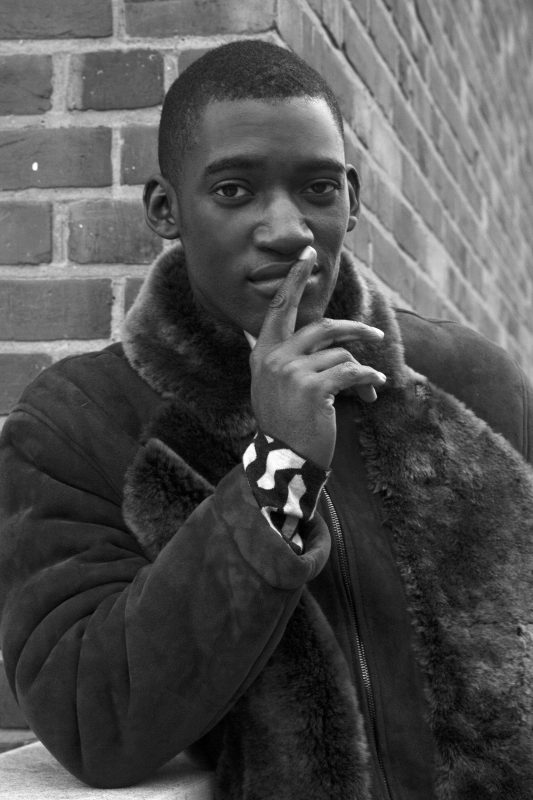
For those who have never seen it, why should they watch?
Well, Charlie Brooker is amazing… the cast that he’s got for this particular series is incredible and the directors. They’ve really gone all out with this series and basically, his stories are very kind of technical. The whole series is about technology and how technology is effecting us as humans and the worst case scenarios that can effect us. I don’t know how to say this without giving it away, but it’s just really, really good writing. its one of those projects that is a passion project, so like, any actors or creatives that get involved with this, do it because they enjoy it. They are stories that are important, but they are also very well dramatised. Its one of those things that will definitely make the audience think and question. I feel like its one of those things you have to take in, in bites. Don’t binge on it. I think one episode is enough for 24hrs.
Charlie Brooker has been quite adamant that this isn’t a ‘message show’ and that it’s purely entertainment, but with things like this, you kind of cant help taking from it.
Charlie Brooker says it’s not a message show, but there is a lot to take from it. I think with him [Charlie Brooker] he’s not trying to tie it all up and make and kind of give us a solution to the problem, but he has definitely highlighted the problems. I think by highlighting the problem, it makes us think, but he doesn’t provide an ‘answer’ which I think is great, because it leaves it open to interpretation.
With it being Black History Month, I must talk to you about the remake of the 1977 classic ‘Roots’ and your absolutely stellar performance as Kunta Kinte. With ‘Roots’ being such a big film, for all races, were you hesitant, sceptical, or nervous about this project at all?
Before I found out that there were any auditions happening or that it was even being re-made, I watched the original two or three years prior. I had herd about it when I was younger. I’d seen it on TV, but I didn’t really appreciate or pay much attention to it and then my Mum formally gave it to me on DVD when I was about 22 and she said ‘Watch this’. About a year later I actually got round to watching it. I think i watched the whole thing back to back. I don’t think I actually stopped, I was just hooked. I had never seen anything like that in my life. It just blew my mind. so when the auditions came about, I was still processing what I had seen. I know the original was made in 1977, but I was thinking, ‘why are they doing this again?’ I’m still going around telling everyone to watch the first one. So when I heard they were making another one, I, like a lot of people, was very sceptical about it, because I felt quite protective over the subject matter. I think that definitely effected my first audition, because I spent more time worrying about if I got the part, than actually preparing for it. It was literally the worst audition of my life and I have no idea why they called me back, but they did and eventually after the screen test, I got to sit down with the producer, Mark Wolper, whose father produced the first one. He told me why this remake was important and why he wanted to do the series again and his reasons just kind of gave me peace. So I jumped on board, but it was the most challenging role I’ve ever played.
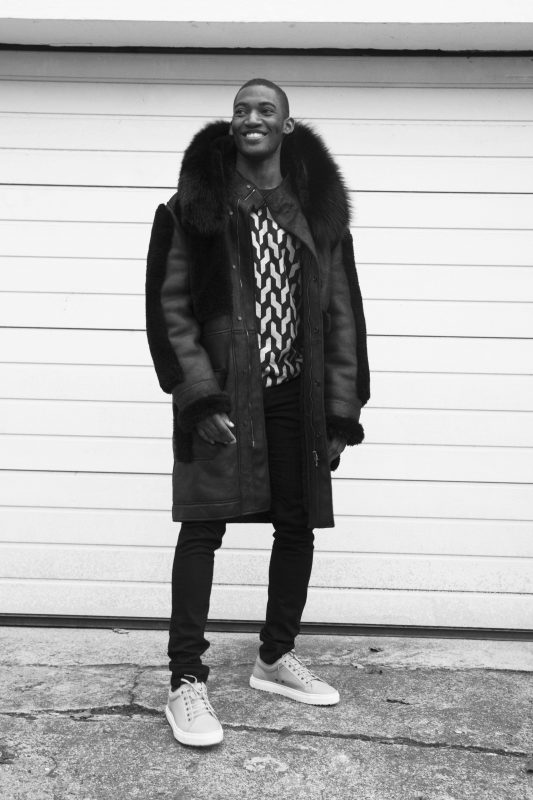
It is a very difficult series to watch. In terms of acting, which scenes were the most challenging, was there any particular scene that broke you?
[Long pause] Yeah, in the whipping scene… There were a lot of scenes that were hard, but the one that actually broke me, was the whipping scene. There were a couple of moments of the boat that were really hard too.
I read that you used that boat set for two whole weeks, so you were in that cramped, dark, dirty environment for two weeks straight?
The boat was a real boat, but we weren’t out at sea. They built it to the actual dimensions of what it would have been at the time and they put 200 African people into this tiny hold and they chained them up – all of us together – and you’re just in this hole… and it’s dark and it’s wet and you’ve just got people crying and screaming and you’re there from sun up to sundown and it’s.. it’s… it’s just horrible. Not only for the actors, because you don’t even feel like you’re an actor at this point. I don’t even think you need to be an actor to respond to that, it’s just disgusting. For me, I didn’t want to come out of there whist we were filming. I wanted to stay in there for the whole day, because I just thought, the people that who would have actually been in here, would have been in here for three weeks before they saw daylight, so I thought the least I could do was stay in there for 24hrs or a day. I just wanted to get as close as I could [as safely as possible] to the experience Kunta Kinte would have had. So on lunch breaks I didn’t leave or eat, as my character was refusing food anyway. When the crew left and the cast left was when I really connected with that experience.That was the biggest thing I took from that. My character had been taken from home and even though he’s surrounded by people, he doesn’t know any of them, they don’t speak his language for the most part. So it was just that feeling of isolation.
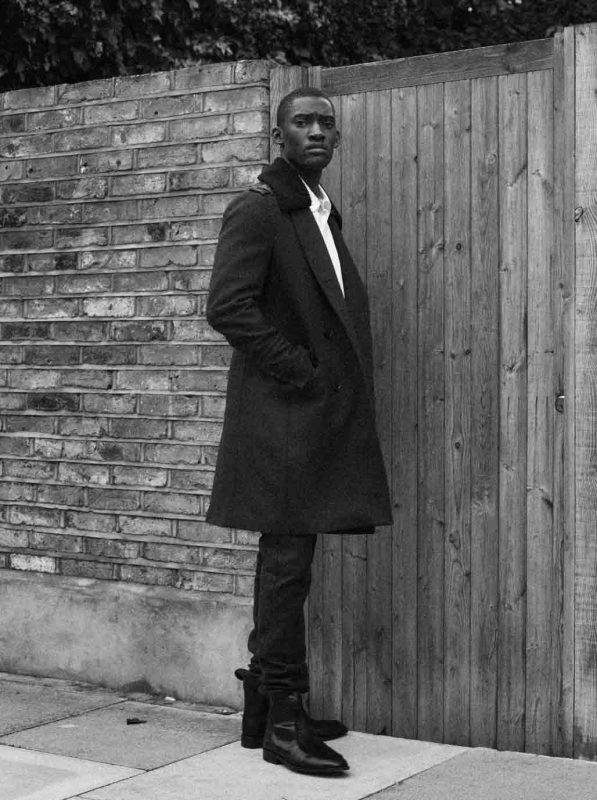
You mentioned the whipping scene – what was your experience with that like?
Before we started that scene, like a lot of the filming, I had no idea to prepare for it. I don’t know how you would begin to prepare mentally for something like that. Before we did that scene, I was praying. I asked God to help me, give me some kind of inspiration as to what he [Kunta Kinte] went through, what it would feel like. They were never actually going to whip me, but I needed to know what it would have felt like. It needed to be more than me just screaming and crying on camera, because it’s not just him being beaten, it’s his identity being stripped away. LeVar Burton who played the original Kunta Kinte, came up to me after the first take, we spent the whole day on this scene, but he came up to me and said, ‘He was a mighty child, I am a mighty man’, he hugged me and walked away and I have no idea why he old me that, but then I went back into it and those words just resonated with me, ‘I am a mighty man’ and it caused me to resist more than felt natural. We ended up making the scene with more than three times the amount of lashes that was in the original. I think there are 33 and the original had 9. He [Kunta Kinte] was going to hold on to his name for as long as he could and when he finally gave in, what I felt was that it wasn’t him giving up, but it was a form of survival, it was him thinking, ‘ok, I can resist and resist and resist and then die or I can tell them what they want to hear so that I can live to fight again.’ When I heard the whip cracking… there was a point where I lost my mind a bit. I just heard these screams, all these cries of all these people who had lost their identities. It was horrible. I just couldn’t get their cries out of my head and it broke me down. I don’t know how long we stopped for, but it was a mess. Basically, I was on the floor, I was in tears, I literally couldn’t get up for maybe 20mins, I just felt their pain and it was horrible. The first person that came over to me was the medic, which gives you an idea of the kid of state I was in… but I kept going, because I didn’t want to have to do this again the next day [laughs].
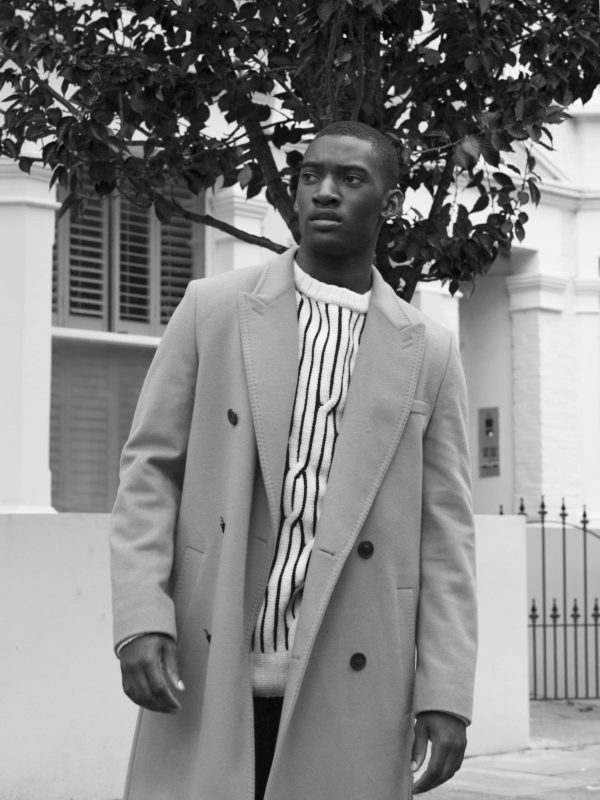
There are people who think ‘Roots’ should be shown in schools to children of a certain age, and there are those who have ‘had enough of slavery films’ at one point I think Snoop Dogg called for a boycott…?
I think it very much depends on the individual. I think this is something that should definitely be watched as a family, especially with younger children, I feel like there should be an adult there to answer the questions they would have after it. I think this could be very damaging to someone who isn’t prepared, but especially a chid. When you are watching a direct inslavement by white people to Africans, it’s very easy for a child to become traumatised by that, so there needs to be a conversation afterwards explaining that this was a long time ago, put it in context and give them perspective. In terms of telling more positive stories… I don’t know if I’m really strange, but I feel like this is one. I think that there is a lot of positives to take from this, I don’t feel like this is a story just about slavery, but about a people who didn’t give into it. The importance of family, who you are and where you come from. Slavery isn’t anything to be ashamed of. We survived it. There are many of races or ethncites who went though slavery and didn’t survive it. I think there are more stories should be told and it’s nothing to be ashamed of. There really aren’t ‘too many slavery films’ and we think we know the story, but we don’t! There is so much more to it than just being a slave. Black history doesn’t begin with slavery …or end with it.
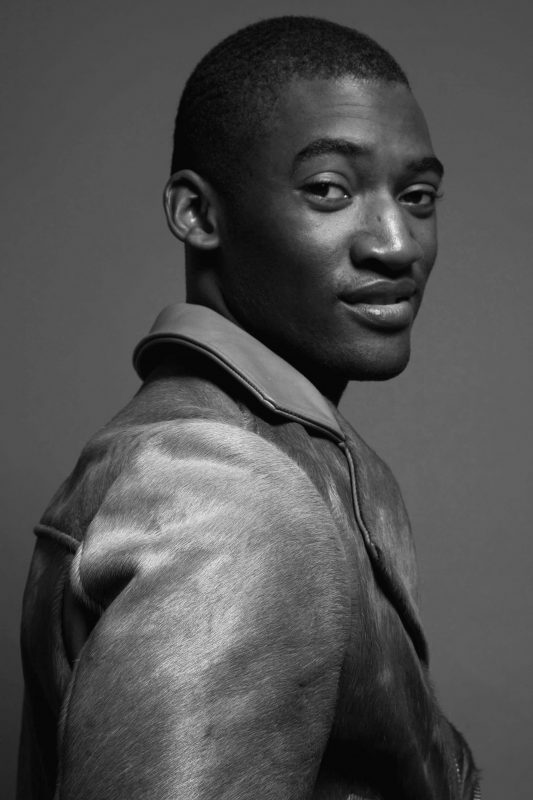
Series three of Black Mirror is available on Netflix now. You can follow Malachi on Twitter.
Words Trina John-Charles
Photography Stephanie YT
Styling Indigo Goss @ ERA Management
Grooming Lillie Russo
Styling Assistant Plum O’Keeffe